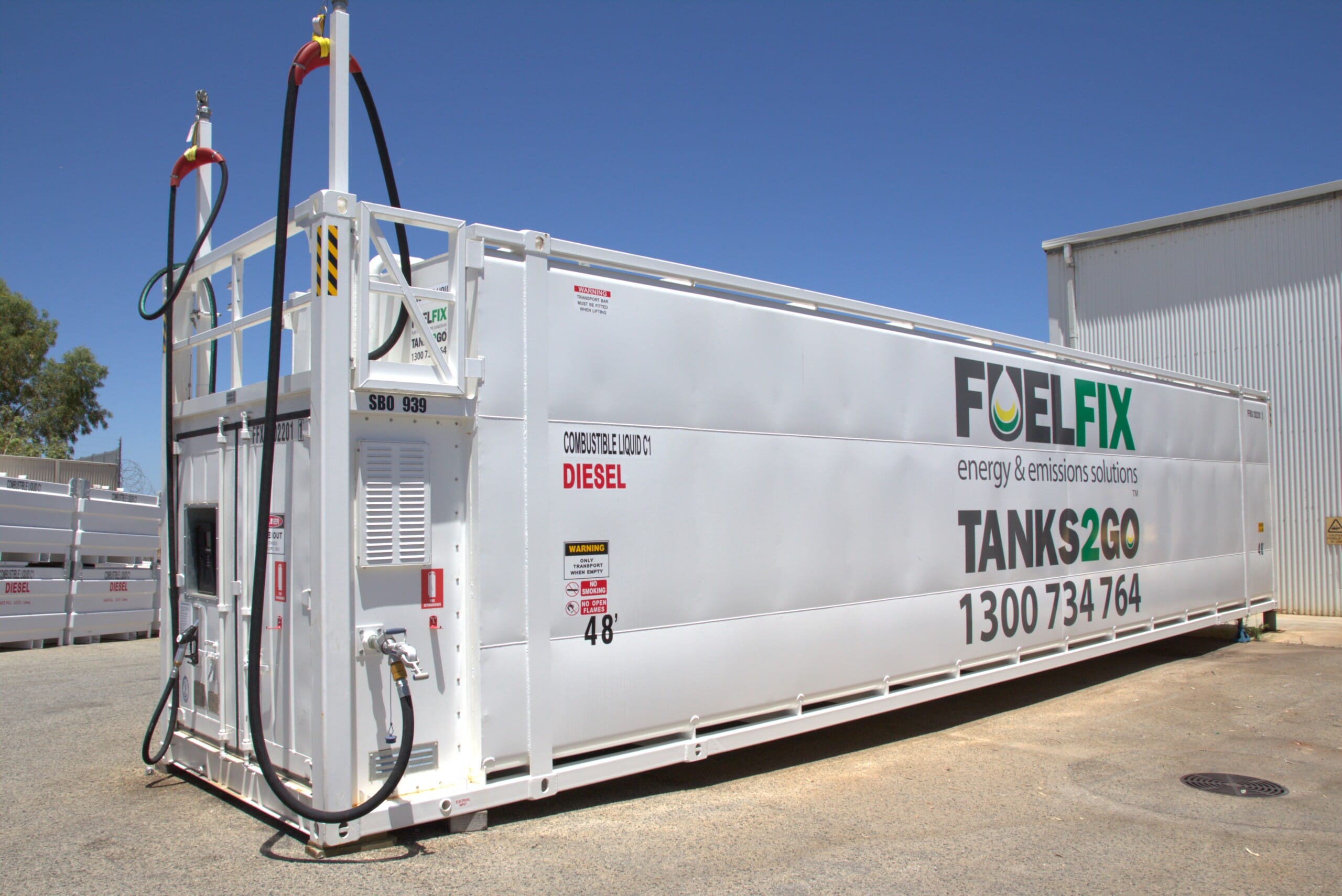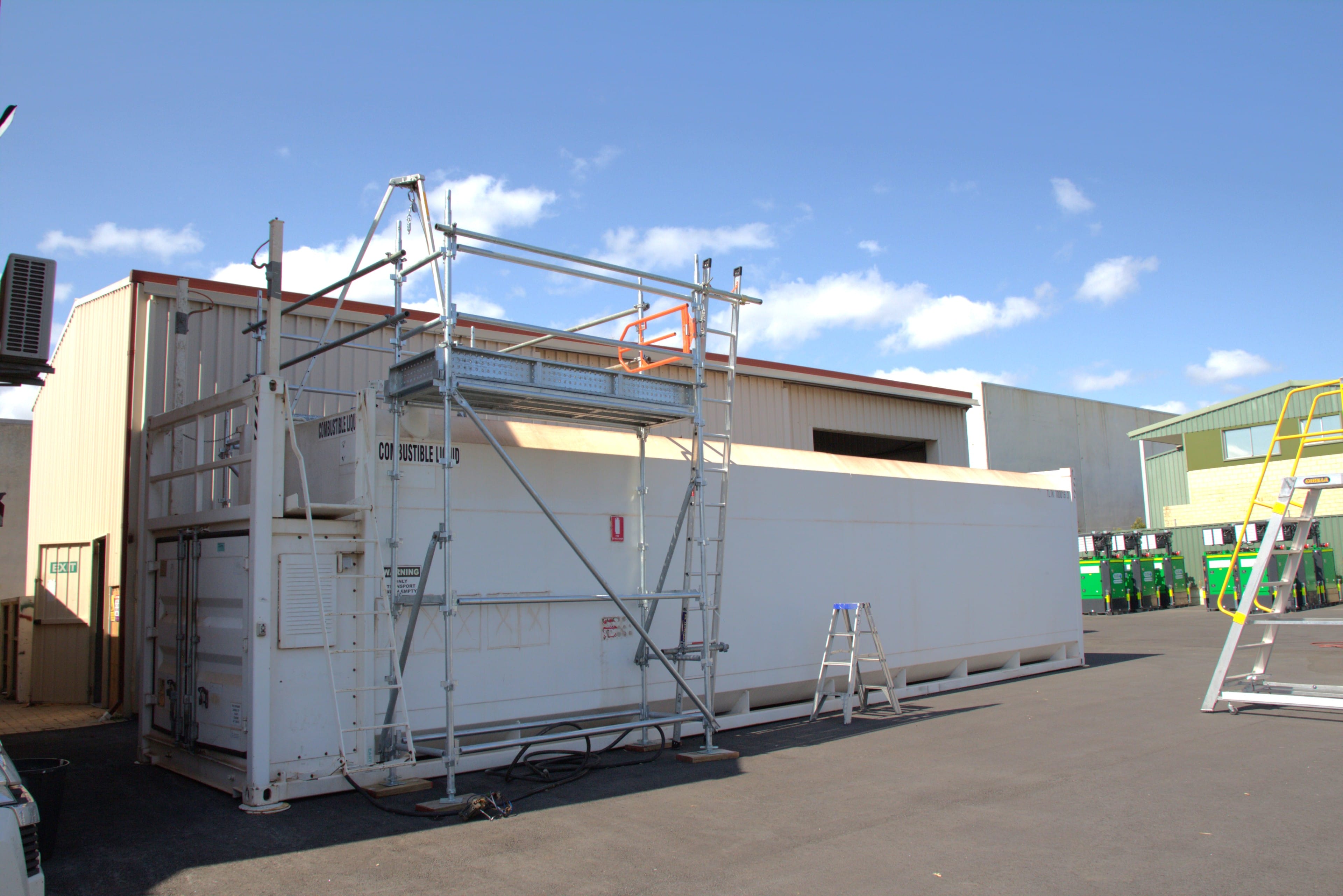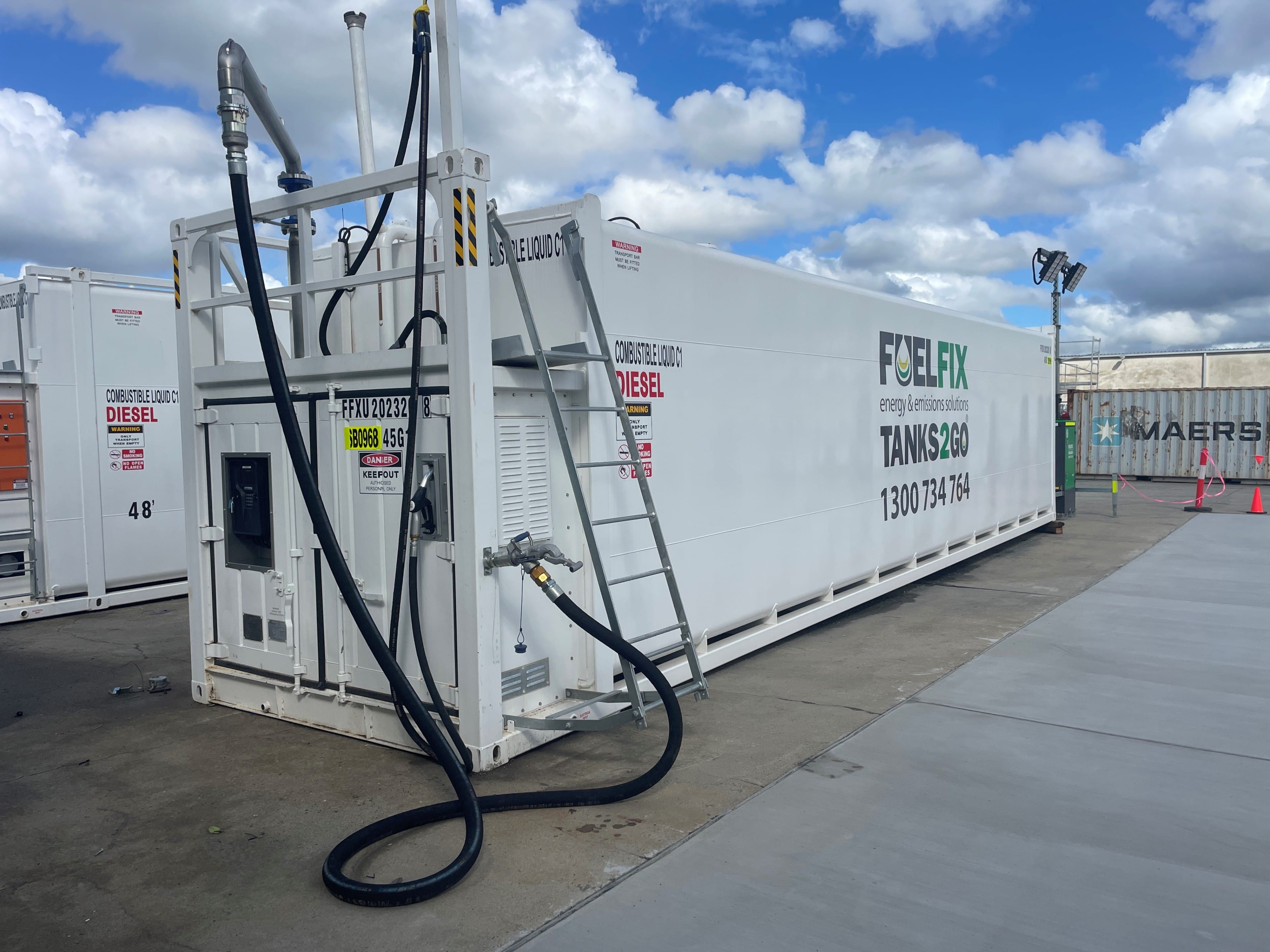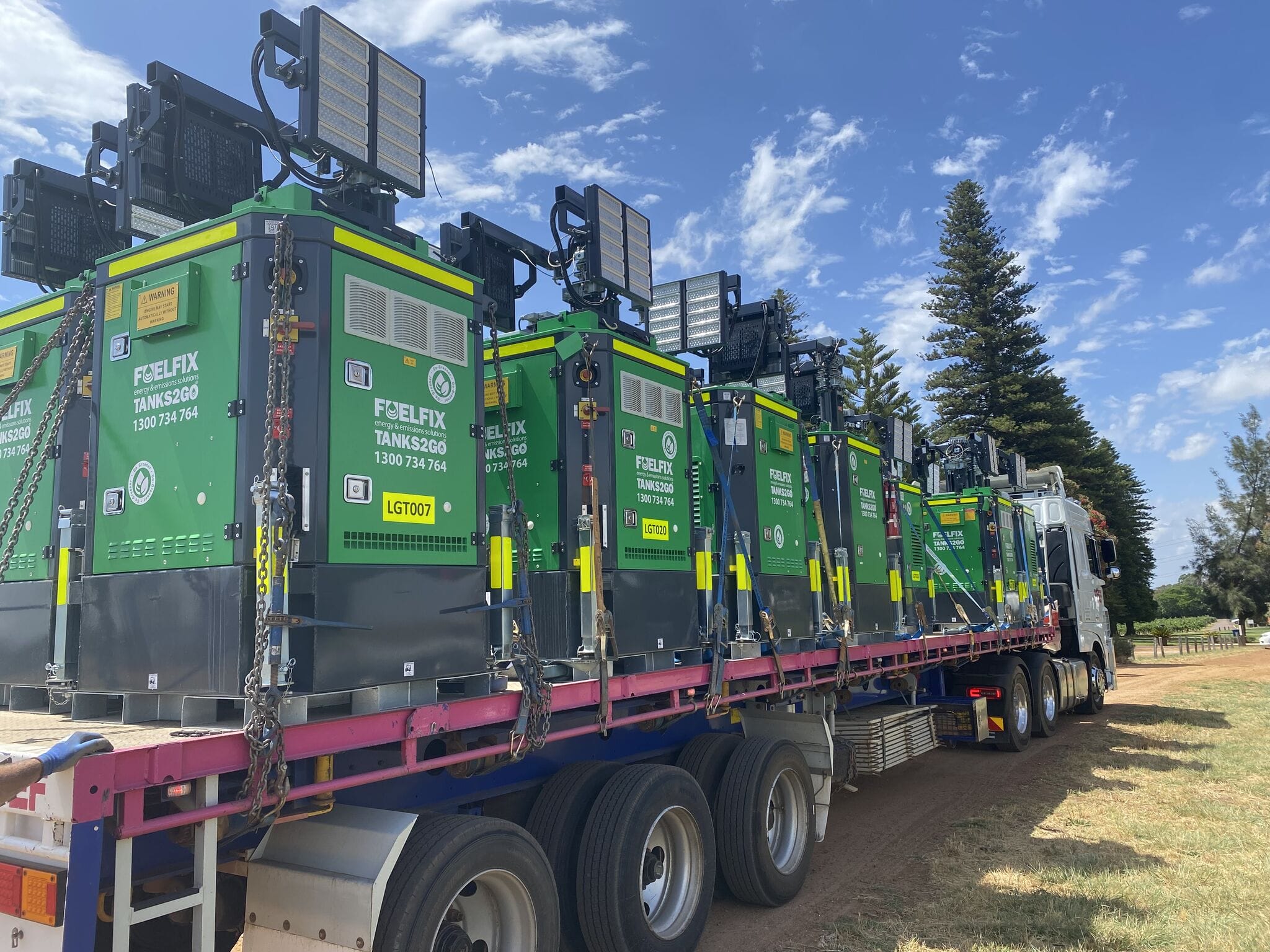
Introduction
It’s a fact: diesel tanks and the fuel they store are the backbone of many businesses, be it in the mining, transportation, civil construction or manufacturing sectors. They ensure that equipment runs smoothly, allowing you to focus on the key challenges and opportunities in your business. In this blog, we’ll go over what it takes to choose a good diesel tank and make sure that it meets all of your business needs.
1. Choose from different tank sizes
If you’re planning to buy a diesel tank for your business, it’s important to determine the best size for your requirements. Key factors to consider are your daily usage, the ability to receive deliveries from your fuel supplier when you want, the potential for buying fuel cost effectively by ordering larger deliveries and the possible need to accommodate spikes in your fuel demand. You’ll also want to consider the importance of having enough buffer or contingency stock in case of an emergency, such as an adverse weather event. You don’t want to impact your equipment uptime and upset smooth business operations.
Having an on-site refuelling solution can help increasing your assets’ operating hours and improving productivity. With less time lost on refuelling detours, machinery and equipment downtime is minimised.
Choosing the right size that supports your operations is critical.
Check out some of our popular large capacity fuel tanks for sale and their operational safe fill levels;
Our range of high-quality and industry proven dispensing solutions have been developed to suit our tanks and your requirements and are generally determined by the product flow rate our customers require and of course safety considerations.
2. Consider the integrity of the tank
One of the fundamental factors to consider when purchasing a diesel tank is its integrity. The vast majority of the tanks that Fuelfix sell are self-bunded steel tanks that are sourced from just a couple of long term suppliers. In fact, Fuelfix use the exact same tanks in its extensive fuel tank hire fleet across Australia.
Being self-bunded means that there are essentially two tanks integrated into the tank construction, with the outer one providing protection and bunding in the rare case of an integrity issue with the inner tank.
3. Pick a tank that complies with regulations
Diesel tanks must meet a number of compliance requirements set out in relevant national and state regulations. In Australia, the key standards governing fuel storage in diesel tanks are:
- AS1940 Australian Standards for the Storage and Handling of Flammable and Combustible Liquids
- AS1692 Steel Tanks for Flammable and Combustible Liquids
- AS1657 Workplace Access and Safety
International standards include:
- UL142 Global Standard for Tanks Holding Flammable and Combustible Liquids
- ULCS601 Standard for Shop Fabricated Steel Above ground Tanks for Flammable and Combustible Liquids
It’s important to ensure the diesel tank you choose meets all relevant standards and is installed in line with local, state and Federal environmental and safety requirements.
All the self-bunded diesel fuel tanks that Fuelfix offers, meet the requirements of the above regulations.
4. Pick the right tank considering its intended location
When looking for fuel storage solutions you need to consider the environment and location of the site where the self-bunded tank will be installed:
- Ensure that the storage tank you choose is appropriate for your proposed on-site location. Fuelfix can advise on aspects such as separation distances from buildings and other structures.
- Consider the footprint of the area you have available. Fuelfix supply a range of tanks of varying dimensions and capacity.
- Also, consider the area required for your fuel supplier’s delivery truck and your refuelling vehicles to approach and depart from the tank.
- Plastic diesel tanks cannot be used on construction sites, AS 1940-2017 2.2.6. section makes it very clear that you require a fuel storage tank that meets current regulations.
- Poly diesel tanks can be used up to maximum capacity of 10,000 Litres but must have minimum separation distance from buildings or boundary fences of 15 Metres. AS 1940-2017 2.2.5.2 (a & e ). This means that on many sites other than farm land it would be unviable to apply such restrictions of installation. Another point to mention is that the risk of installing a non- compliant fuel storage tank would most likely void any insurance in the unfortunate event of a incident.
5. Check on the tank safety features
Safety is one of the most important features to look for when buying a diesel tank.
Before you buy a diesel tank, make sure the required safety features are in place:
- overfill prevention systems,
- overfill alarms,
- non-return valves,
- manual dipsticks,
- pressure relief systems.
Your supplier should be able to provide you with assurance that the appropriate equipment and systems are in place.
Safety features are critical to prevent harm to people and damage to the environment.
6. Consider self-bunded diesel fuel tanks
On-ground self-bunded diesel tanks are an increasingly popular alternative to traditional in-ground or above ground storage options, revolutionising diesel storage in urban and remote locations. In sizes up to 110,000 litres, self-bunded diesel tanks are fully compliant with Australian and international standards and don’t require external bund walls, making installation simple even in remote or hard to access locations. The design of the tanks also means they can be easily secured on site and can be easily maintained to keep fuel fresh for longer, minimising machinery maintenance costs.
Small self bunded cube style portable diesel tanks in sizes from 1000 litres provide fast and flexible small-volume portable diesel fuel storage – ideal for operators wanting to get the competitive savings and reliability of large volume fuel storage with all the flexibility of a design and drop installation.
High volume self-bunded diesel storage tanks in sizes up to 110,000 litres are a popular option for large scale fuel farms at remote mine sites, because multiple fuel storage tanks can be easily connected to create a large volume, high demand refuelling facility.
When you purchase self-bunded fuel tanks, the site preparation is minimal. They are easier to install, clean and maintain than traditional underground fuel storage systems, with easy secure access and the capability to work with the latest fuel distribution and fuel management technology.
7. Buying from a company you can trust.
With over two decades of technical and practical knowledge, FuelFix & Tanks2Go is an Australian owned and operated business providing our clients with premium products and services, as well as unparalleled customer service.
Our tanks are designed and manufactured to the highest standards and are engineered to meet the toughest industry requirements. We offer a range of tanks from small to large, including self-bunded tanks, double-walled tanks, and other specialty tanks. We also provide a full range of fuel tank accessories, including pumps, filters, and valves. We have strategically located branches all across Australia and deliver to all Australia post codes. For customers looking for a reliable and cost-effective diesel tank solution, FuelFix & Tanks2Go is an excellent choice.
Conclusion
If you’re buying a diesel tank, you should take all of the above important factors into account. You can also read our related article where we’ve compiled some tips to buy a self-bunded tank.
Suppliers like Fuelfix are able to provide answers to all of your questions and provide you with confidence that you are making the right decision on your significant purchase.



